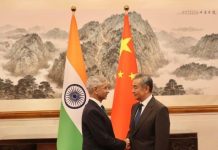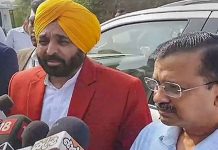 Mayawati and her Bahujan Samaj Party have finally joined social media. It was strange that the four-time chief minister, former MP and arguably the most prominent contemporary Dalit leader in the country took so long to make an entry into the Twitterverse. Particularly when even small-time politicians are propagating their point of views on almost all the issues through various online social networking mediums. Some popular leaders in the country tweet more than 100 times a day. Quite possibly, she may be looking only at the negative aspects of staying active on Twitter when she said in the past that the social media platform is not relevant to her brand of politics. Reports suggest that she had even distanced the BSP from accounts running in its name.
Mayawati and her Bahujan Samaj Party have finally joined social media. It was strange that the four-time chief minister, former MP and arguably the most prominent contemporary Dalit leader in the country took so long to make an entry into the Twitterverse. Particularly when even small-time politicians are propagating their point of views on almost all the issues through various online social networking mediums. Some popular leaders in the country tweet more than 100 times a day. Quite possibly, she may be looking only at the negative aspects of staying active on Twitter when she said in the past that the social media platform is not relevant to her brand of politics. Reports suggest that she had even distanced the BSP from accounts running in its name.
She was right in a way as social media is not known for helping politicians all the time. Sometimes, it simply trips them up. First it lulls them into a false sense of security — rewarding chit chat about their daily routine or their constituency, welcoming them into an environment where almost everyone is free to tweet unguarded thoughts and opinions. Then, at some unspecified but certain point, it brutally shames them in front of the whole world. Almost every post an individual or organisation could be twisted by the rivals and their followers. A lot of energy is wasted in allegations and counter-allegations. The social media user is required to be on its toes almost 24 hours every day for an offence or defence.
But not joining social media has its own set of problems. The BSP, for example, had found itself playing catch-up in the recent past on several issues — from the death of Rohith Vemula and flogging of Dalits at Una in Gujarat to mobilisations by the Bhim Army in Western UP. How a politician, or for that matter any one, uses tweets to attack his or her rivals is an open secret. Mayawati’s party losing substantial support in scheduled caste communities to rivals like the BJP may be attributed to the social media campaign run by the saffron party against the elephant’s followers. As a younger Dalit leadership emerges with the entry of Jignesh Mevani and Chandrashekhar Azad, @SushriMayawati needs to make her presence felt among her base, as well as the youth. And it is not possible without staying active on the social networking websites.
How she and the BSP handle the inevitable rudeness and vulgarity in the social media wrestling is yet to be seen. But one thing is clear that one more strong player has joined the political battle, which is being fought in the cyberspace. The 2019 Lok Sabha polls will be won by the one who plays well on the social networking websites. This has been happening since 2014 general elections. It will happen again. For this reason, every party is devoting most of its time and energy on online campaigning to reach wider audience in much less time. So far there are no set rules to engage on these online platforms. The good news is that Facebook, which has an estimated 300 million users in India, is readying itself for the election-related dramas. Twitter and other key social networking websites should also take a cue from it and devise strategy to stop their misuse during polls.
letters@tehelka.com












